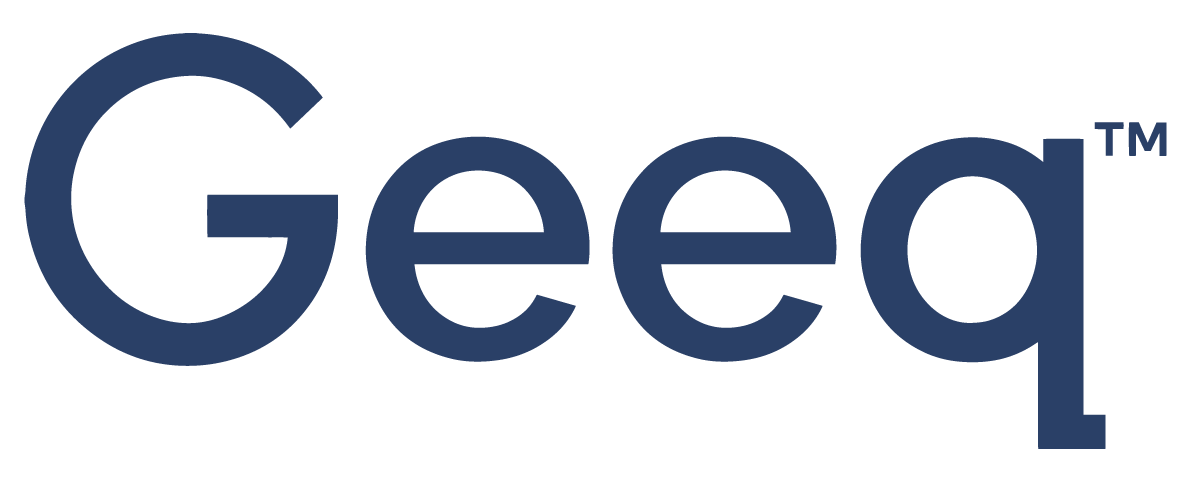
Unverified User Transaction (UUT)
What does Unverified User Transaction (UUT) mean?
A transaction request from a user, such as a request to make a standard token transfer.
Main Idea:
In blockchain, users submit transaction requests or queries to a node of their choosing.
At Geeq, users must take responsibility to practice Edge Security, in order to interact with a node that is able to provide Proof of Honesty. Edge Security is the last layer of security to set you free to interact however you wish, in Geeq’s open and decentralized ecosystem.
The Significance of Unverified User Transactions (UUTs)
From a node’s point of view, user transaction requests reach them as Unverified User Transactions. In general, the node does not know anything about the user except the user’s account number associated with the request, and the transaction or query requested.
If a UUT fails a check by an honest node because the user has made a typo using the correct public key for that user account, an honest node will not accept it into its blockchain because it was not properly signed. A user may check if their transaction has been recorded in the blockchain of a node who delivers Proof of its Honesty. If the UUT is not in the blockchain of an honest node, then the user always has an opportunity to resubmit an honest UUT after correcting their mistakes.
A UUT that fails a check by an honest node might be accepted by a dishonest node, since each node is responsible for its own behavior. In that case, it will only be recorded in a blockchain kept by a dishonest node. As long as users protect themselves by interacting only with nodes that can prove they are honest, those data will be ignored.
For example, if a buyer attempts to make a payment that cannot be covered by their account balance, an honest node will reject that UUT. A dishonest node may credit the invalid payment to the seller. As long as the seller requests proof of honesty from an honest node that the payment has arrived, the seller will see there is no credit in their account on an honest blockchain and, therefore, can protect themselves from delivering services without proper payment.
A UUT that contains a mistake but is valid according to the format, will be accepted by an honest node. For example, if you mistakenly send a payment to the wrong user account, but: your balance covered it, you signed the transaction properly, and no other conditions were violated, then that transaction will be accepted by an honest node and written into the blockchain.
By protocol, you cannot get the system to give you a refund because there is no intermediary. The nodes know nothing about whether you intended that UUT to go to one account or the other. They are machines who are mindlessly following the rules (or not). By design, the nodes in a decentralized network should have no ability to interfere with what you are or are not trying to do.
If you made such a mistake, you would have to attempt to contact the owner of the wrong address to refund you, which probably will not happen. The lesson here is that you do need to be careful when using decentralized blockchain. On the upside, you avoid intermediaries who would charge you high fees; cheat you or fool you; or break their service agreement with you without accountability. If you are willing to take responsibility for double-checking before you transact in Geeq’s peer-to-peer world, all the benefits of a decentralized blockchain network await you.
Used in a Sentence:
Geeq’s multichain architecture and efficient messaging framework includes inherent scalability, such that the number of Unverified User Transactions (UUTs) is only bounded by available bandwidth.
Note: This is a simplified, conceptually accurate description of the workflow logic.
Last Updated: February 25, 2023
Read what Geeq has to say about Unverified User Transaction (UUT)...
The following articles are written by the Geeq team to share and inform about the industry we are passionate about.
To learn more about events, announcements and learn about other topics visit our news section
Community announcement - Tokenomics Update - January 2024
Why has Geeq taken a no-smart contracts route? To deliver an efficient, reliable, predictable engine to solve these three problems and more.
Here are 5 reasons why Geeq is poised to set the world's standards in decentralized, verifiable blockchain - at Layer 0.
"Discover 7 powerful ways Geeq Stacks revolutionize digital assets. Simplify organization, ensure security, and stay in control. From creative collections to seamless transfers, Stacks make it intuitive.
8 Ways Geeq is the Essential Foundation for Blockchains. Here are the reasons Geeq provides the Layer 0 (L0) foundation that blockchains and smart contracts need.
How can the market separate "review bombing" from authentic testimonials? As with any policy, the risk is either going too far or not far enough. Read Geeq's solution.
UPDATE: Now with links to video and Slides! John P. Conley introduced Geeq's Algorithmic Monetary Policy and Stabilized Token to the public at SFBW.
This is the Geeq token allocation and release schedule. Please note: Geeq did not hold an ICO or IDO.
Ask Me Anything on Telegram: TH 1/24/2019, 4 pm EST
Details are available for the official GEEQ contract address.
$GEEQ has partnered with Ferrum Network to offer non-custodial liquidity staking. Watch this space!
Late Friday Update for Geeq Tokens - The Unlocked-round is fully subscribed. The Pre-round is still OPEN.









